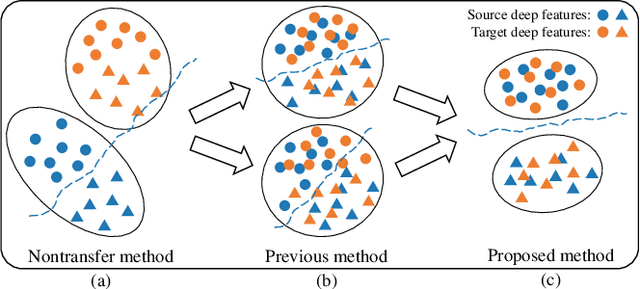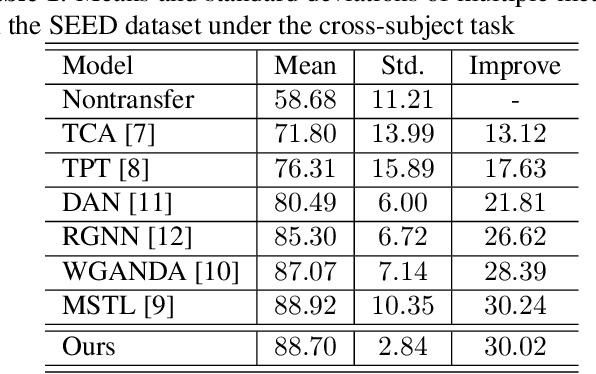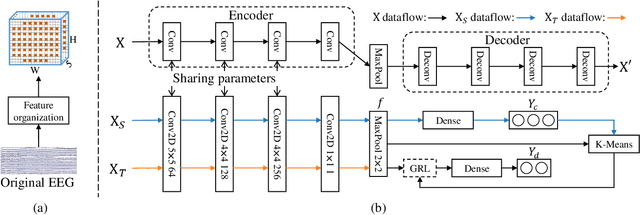Multi-Subdomain Adversarial Network for Cross-Subject EEG-based Emotion Recognition
Paper and Code
Aug 27, 2023



The individual difference between subjects is significant in EEG-based emotion recognition, resulting in the difficulty of sharing the model across subjects. Previous studies use domain adaptation algorithms to minimize the global domain discrepancy while ignoring the class information, which may cause misalignment of subdomains and reduce model performance. This paper proposes a multi-subdomain adversarial network (MSAN) for cross-subject EEG-based emotion recognition. MSAN uses adversarial training to model the discrepancy in the global domain and subdomain to reduce the intra-class distance and enlarge the inter-class distance. In addition, MSAN initializes parameters through a pre-trained autoencoder to ensure the stability and convertibility of the model. The experimental results show that the accuracy of MSAN is improved by 30.02\% on the SEED dataset comparing with the nontransfer method.
 Add to Chrome
Add to Chrome Add to Firefox
Add to Firefox Add to Edge
Add to Edge